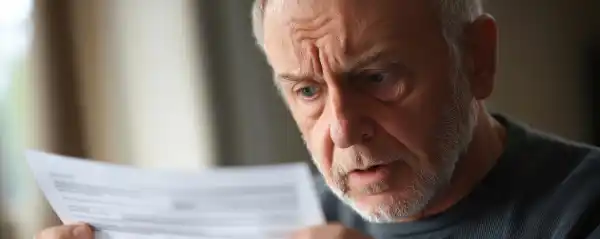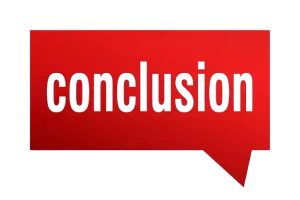What Is an “Agent?”

An agent is a person who is authorized to work on your behalf. In Real Estate, you need to actually sign an agreement to make the relationship official. A Buyers Agency Agreement (may have a different name in different states) is an official declaration that the real estate agent is going to represent the best interests of you, the client.
Why Should I Sign a Buyers Agency Agreement?
Well, if you want to be represented by a licensed real estate professional, you need to sign it. Implying agency (having someone act as an agent without a written agreement in place) is not allowed. If you are “working” with a real estate and you did NOT sign a buyers agency agreement, you may want to have a conversation with the Agent and find out if you are a “client” or a “customer”.
Client
A client is a person who is represented by an agent. Both parties have signed a legal and binding buyer agency agreement and have agreed to certain obligations to each other. The buyer’s agent owes the buyer (the client) the fiduciary duties any agent owes their client. Among them, the most important are confidentiality, loyalty, and disclosure. In other words, the agent must keep all conversations confidential, must remain loyal to the client and disclosure EVERYTHING the agent knows about the property.
Customer
A customer is a person who is “kinda-sorta” working with a real estate agent. There are HUGE differences between being a customer and a client. First and most important is that the fiduciary duties discussed above do not exist. The agent is NOT representing you and therefore, anything you say to them could be repeated to the listing agent, or even the seller directly! The real estate agent owes you fairness and honesty, but no confidentiality, loyalty or disclosure (or any of the other fiduciary duties) They can do things like set up showings and even prepare the offer and a purchase & sales agreement for you, BUT they are only allowed to fill in the blanks as you instruct them to. They cannot offer you any advice.
If you are a “customer”, you should be careful what you say until you sign that buyer agency agreement because confidentiality, disclosure, and loyalty are not established yet.
Here is a common example of the problems being a “customer” can cause:
A buyer sees a house he is interested in and calls the number on the sign. The phone is answered by the agent representing the seller. This agent has the fiduciary duties we discussed above, except it’s with the SELLER, not the BUYER. The seller does his job and shows the buyer the house. While looking at the house, the buyer looks at his wife and says “Honey, this house is amazing. I think we should make a full price offer!” The wife says “Let’s start out lower and we can go up to full price if we have to. Let’s try to negotiate.”
OK, now here is the big difference between that agent being your agent or the seller’s agent. Because he represents the seller, he has no choice but to take the offer to the seller and then he will say “OK, I have an offer for you, but the buyers told me they are starting low and are willing to go to full price, so I am recommending we reject the offer and counter at full price.”
You may think this agent is being awful and unfair, but the truth is that he’s following the law. Do you remember earlier when I said he owes his client (in this case, the SELLER) disclosure? By law, he is obligated to tell his seller that the buyers are willing to go to full price. It’s his job and it’s one of the biggest advantages to the agency relationship.
What Other Advantages Are There To Having an Agent?
Your Buyer’s Agent has a whole list of obligations to help you through the transaction. Here is a small list of what they can do to help you through the transaction…
- First and foremost, the Buyers Agent levels the playing field. The Listing Agent works for the seller’s best interest. The Buyer’s Agent will work for your best interest.
- Help you find the right home, lend her experience to you and help you think of the stuff you haven’t even thought of yet
- Work with you and your Lender to make sure the home qualifies for the loan program you are looking to use
- Schedule and tour homes with you
- Create a market analysis to find out what the home is really worth (It may be more or less than the list price!)
- Negotiate the price on your behalf (keeping in mind the listing agent is trying to negotiate the price up)
- Prepare the offer and purchase documents with YOUR best interest in mind (If not, you would either use an attorney or let the Listing agent do it, but remember that the listing agent is always looking out for the seller, not you)
- Keep track of your deposit and watch important dates so your deposit is not in jeopardy
- Helps you through the inspection process, which can include setting up inspections to negotiating for repairs in a timely manner, being careful not to miss any deadlines.
- Make sure all parties (lender, attorneys, listing side, etc) are moving towards an on time closing by making sure things like smoke detector certificates, pay-offs, and taxes are being worked on before the closing.
- If anything starts to go off track, it is the buyer agent’s job to keep it on track or get it back on track.
How Much Does a Buyers’ Agent Cost Me?

This is a hard question to answer and one that has frustrated many buyers in the past. In fact, the National Association of Realtors® and the Department of Justice have recently reached a settlement regarding how Realtors® were charging fees. (I will be creating a new article to discuss this settlement as soon as I can, so be on the lookout for it)
Regardless of the settlement, it works like this… You may or may not have to pay your Agent. When you sign your buyers’ agency agreement, you and your Agent will negotiate an amount. It may be a flat fee, but it’s usually a small percentage of the sale. I know that doesn’t sound all that confusing, so what am I talking about? Well, you may or may not have to be the party paying that fee.
Here’s an example:
Let’s say you and your Agent agree to a 3% commission for the buyer agency fee. If you’re buying a $400,000 house, that is $12,000. Someone needs to pay it. Sometimes it’s the seller, sometimes it’s the buyer and sometimes it’s a combination of the two.
When you find a house you want to buy, your agent will ask the listing agent if the seller is willing to contribute towards the buyer agent’s commission (this is something the seller and the listing agent agreed upon when they signed their agreement, a listing agreement) If the seller (or possibly the seller’s office) is willing to split the commission, they will contribute the agreed upon amount to the buyer’s agent. Let’s say the seller or the listing agent’s company is willing to contribute 2.5% to the buyer’s agent. They would cover $10,000 towards the fee and your share would be $2,500.
Of course, you could always negotiate that your buyer’s agent will possibly work for the amount contributed by the listing side only, which would mean the Buyer’s agent has agreed to represent you and your best interest for $10,000 and it is paid 100% by the seller, not by you. Most of the time, the buyer doesn’t pay the buyer’s agent fees, or they will just pay the difference between what the seller is offering and what the buyer’s agent agreed upon.
I have oversimplified my answer to the question above to keep it as simple as possible. I know it’s still a little confusing, but a quick conversation with your buyers agent can help you understand this in greater detail. One of the most important things to know at this point is that the amount you may (or may not) owe your Buyer’s Agent will not be a surprise. It will be discussed between you and your Agent and then again between you, your agent, the seller and the listing agent BEFORE your offer can be accepted. The other important thing to remember is that even if you do owe a part of the commission, it’s usually rolled into the mortgage, so you won’t have to come to the closing with a check with your agent. (Most of the time! Please check with your lender to be sure BEFORE you and your agent start looking for homes)

In conclusion, it is probably a good idea to find yourself a really good Buyers Agent if you plan on buying a home. If for no other reason, you want to level the the playing field and make sure someone is watching out for you the same way the listing agent is looking out for the seller. The fact is that buying a home is an extremely emotional process and having someone standing in the middle and looking out for your best interest can be priceless!
As for the costs, don’t worry about it too much because you can negotiate the cost with your agent and your agent can help you negotiate the costs into the deal with the seller. However, going it alone can cost you more than you could ever imagine. You may overpay, put your deposit in jeopardy, miss the dates for inspections or any number of other things. Your home purchase is usually your largest investment, so it’s not usually a great time to go it without some professional help!
Just make sure you do your homework and hire a qualified Buyers Agent because not all agents are created equal!!!!

